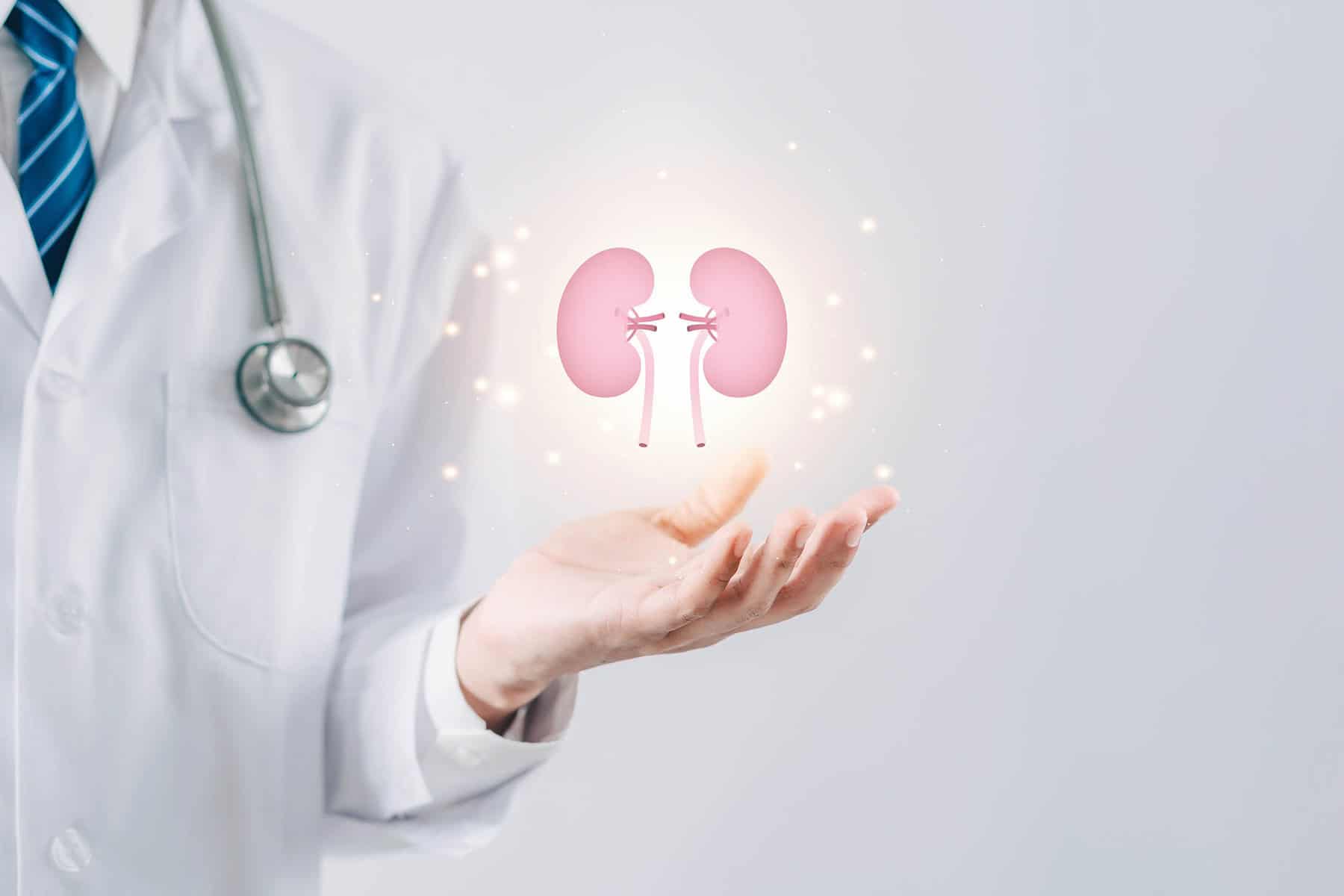Advanced Kidney Stone Treatment
Suffering from kidney stones? Discover advanced treatment options at The Forbury Clinic. Submit an enquiry for a consultation and get expert care to alleviate your pain and prevent future stones.

Overview of Kidney Stones
Kidney stones are hard deposits of minerals and salts that form inside the kidneys, causing severe pain and discomfort. These stones can vary in size and may affect different parts of the urinary tract. Addressing kidney stones promptly is crucial to prevent complications such as urinary infections, blockage of the urinary tract, and potential kidney damage. At The Forbury Clinic, we specialise in the diagnosis and treatment of kidney stones, offering comprehensive care tailored to each patient’s needs. Our team of experienced specialists uses state-of-the-art technology to provide effective and minimally invasive treatments, ensuring a swift recovery and reducing the risk of recurrence.


What Are Kidney Stones?
Kidney stones are hard deposits made of minerals and salts that form inside your kidneys. They can affect any part of your urinary tract, from your kidneys to your bladder. Stones often form when the urine becomes concentrated, allowing minerals to crystallise and stick together. Kidney stones can vary in size, ranging from a grain of sand to a golf ball. Common symptoms include severe pain in the side and back, below the ribs, pain during urination, pink, red, or brown urine, nausea, vomiting, and frequent urination. Sometimes, stones cause no symptoms until they move around within the kidney or pass into the ureter, the tube connecting the kidney and bladder.
Causes and Risk Factors
Kidney stones form when there is a decrease in urine volume and/or an excess of stone-forming substances in the urine. Several factors can increase the risk of developing kidney stones:
Dehydration:
Not drinking enough water can lead to concentrated urine, increasing the risk of stone formation.
Diet:
A diet high in protein, sodium, and sugar can increase the risk of some types of kidney stones.
Obesity:
High body mass index (BMI), large waist size, and weight gain have been linked to an increased risk of kidney stones.
Medical Conditions:
Certain conditions like hyperparathyroidism, renal tubular acidosis, and urinary tract infections can increase the likelihood of developing stones.
Digestive Diseases and Surgery:
Gastric bypass surgery, inflammatory bowel disease, or chronic diarrhoea can cause changes in the digestive process that affect calcium and water absorption, increasing the amount of stone-forming substances in the urine.
Family History:
A family history of kidney stones can increase your risk.
Medications:
Certain medications, such as diuretics, calcium-based antacids, and some antibiotics, can increase the risk of kidney stones.
Recognising these causes and risk factors can aid in the prevention and early diagnosis of kidney stones, helping to manage the condition effectively.
Diagnosis
Diagnosing kidney stones at The Forbury Clinic involves a thorough evaluation to determine the size, location, and type of stone, which guides the treatment plan. Our specialists use a combination of advanced diagnostic tools and personalised assessments, including:
- Medical History and Physical Examination: A detailed discussion of symptoms and a physical examination to check for signs of kidney stones.
- Urine Testing: Analysis of urine samples to check for crystals, minerals, and other substances that indicate the presence of stones.
- Blood Tests: To identify high levels of minerals and substances that can form stones.
- CT Scan: The most common imaging test for kidney stones, providing detailed images of the urinary tract.
- Ultrasound: A non-invasive test that uses sound waves to detect stones in the kidneys and ureters.
- X-Ray: Sometimes used to see certain types of kidney stones, though it is less commonly used than CT scans.
- Analysis of Passed Stones: If stones are passed naturally, they can be collected and analysed to determine their composition.
These diagnostic methods allow our team to develop a targeted treatment plan tailored to each patient’s needs.

Treatment of Kidney Stones
At The Forbury Clinic, we offer a comprehensive range of treatment options for kidney stones, tailored to the individual needs of each patient. Our approach combines the latest medical advancements with compassionate, patient-centred care:
- Standard Treatments
- Medical Therapy
- Minimally Invasive Procedures
- Surgical Options
- Innovative Treatments
Treating Reversible Causes:
Identifying and addressing any underlying conditions or lifestyle factors contributing to stone formation, such as dehydration, diet, or medication adjustments.
Pain Management:
Medications to manage pain and discomfort caused by kidney stones, including nonsteroidal anti-inflammatory drugs (NSAIDs) and other pain relievers.
PDE5 Inhibitors:
Medications such as alpha-blockers can help relax the muscles in the ureter, allowing stones to pass more easily.
Extracorporeal Shock Wave Lithotripsy (ESWL):
Uses sound waves to break the stones into smaller pieces that can be passed in the urine.
Ureteroscopy:
A thin scope is inserted through the urethra and bladder into the ureter to locate and remove the stone or break it into smaller pieces using laser energy.
Percutaneous Nephrolithotomy (PCNL):
A procedure to remove larger stones directly from the kidney through a small incision in the back.
The Forbury Clinic offers cutting-edge treatments such as laser lithotripsy, which uses a laser to break up stones into small fragments that can be passed naturally.
Our multidisciplinary team ensures that each patient receives the most appropriate and effective treatment, enhancing their quality of life and managing their condition with precision and care.
Managing Kidney Stones
Effective management of kidney stones involves a combination of medical treatments and lifestyle adjustments to prevent recurrence and manage symptoms. At The Forbury Clinic, we support our patients with tailored advice and comprehensive care:
Hydration:
Drinking plenty of water throughout the day helps dilute substances in the urine that can form stones. Aim for at least 2-3 litres of fluid intake daily.
Dietary Changes:
Reducing salt and animal protein intake, while increasing the consumption of fruits, vegetables, and whole grains can help prevent the formation of stones. Specific dietary recommendations may vary based on the type of stones.
Medication:
Depending on the type of stones, medications may be prescribed to control the levels of certain substances in the urine. For example, thiazide diuretics for calcium stones or allopurinol for uric acid stones.
Regular Monitoring:
Periodic urine and blood tests to monitor for signs of new stone formation and to ensure that any existing stones are not growing.
Avoiding Certain Supplements:
Limiting or avoiding calcium and vitamin D supplements, which can contribute to stone formation.
These management strategies are designed to complement medical treatments and provide a holistic approach to preventing and controlling kidney stones.
Complications
While kidney stones can often be managed effectively, untreated stones can lead to several complications that may affect overall health:
- Urinary Tract Infections (UTIs): Stones can block the flow of urine, leading to infections.
- Kidney Damage: Persistent obstruction from kidney stones can cause kidney damage or decrease kidney function.
- Hydronephrosis: Swelling of the kidney due to the build-up of urine caused by blockage from a stone.
- Severe Pain: Ongoing or severe pain that can affect quality of life and daily activities.
Prognosis
With timely diagnosis and appropriate treatment, the prognosis for most individuals with kidney stones is generally good. Most stones can be managed with medication and lifestyle changes, and minimally invasive procedures are effective for removing stones that do not pass on their own. Regular follow-ups and monitoring are crucial to prevent recurrence and to ensure that any new stones are detected and treated early. At The Forbury Clinic, we are committed to guiding our patients through their treatment journey with comprehensive care and support, ensuring the best possible outcomes and a higher quality of life.


Why Choose The Forbury Clinic?
Choosing The Forbury Clinic for your kidney stone treatment means opting for excellence in medical care. We pride ourselves on combining expert medical staff, cutting-edge technology, and a compassionate, patient-centred approach. Our team of specialists is highly experienced in diagnosing and treating kidney stones, offering personalised care tailored to your specific needs. We utilise the latest in medical innovations, from advanced imaging techniques to state-of-the-art minimally invasive procedures, ensuring you receive the most effective care with minimal discomfort. At The Forbury Clinic, we are dedicated to enhancing your health and well-being in a welcoming and discreet environment, ensuring a positive patient experience.